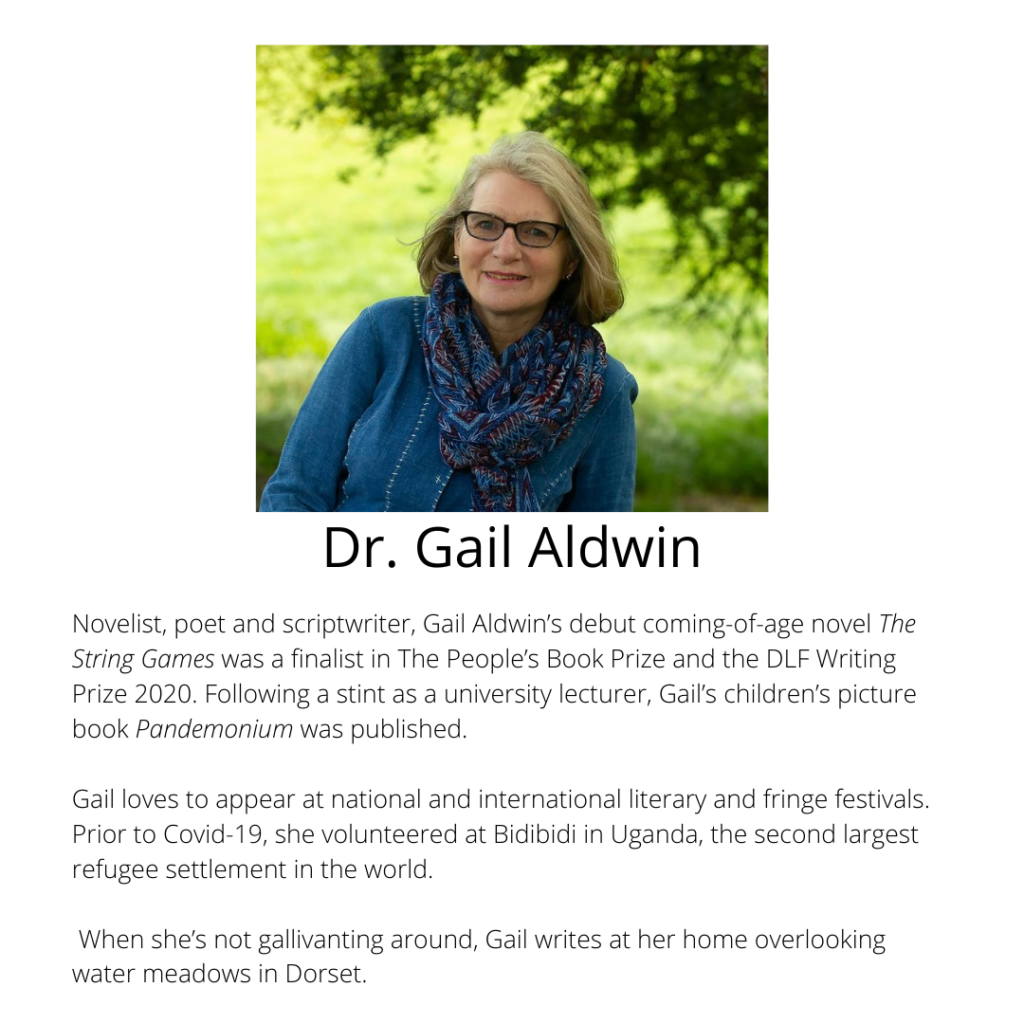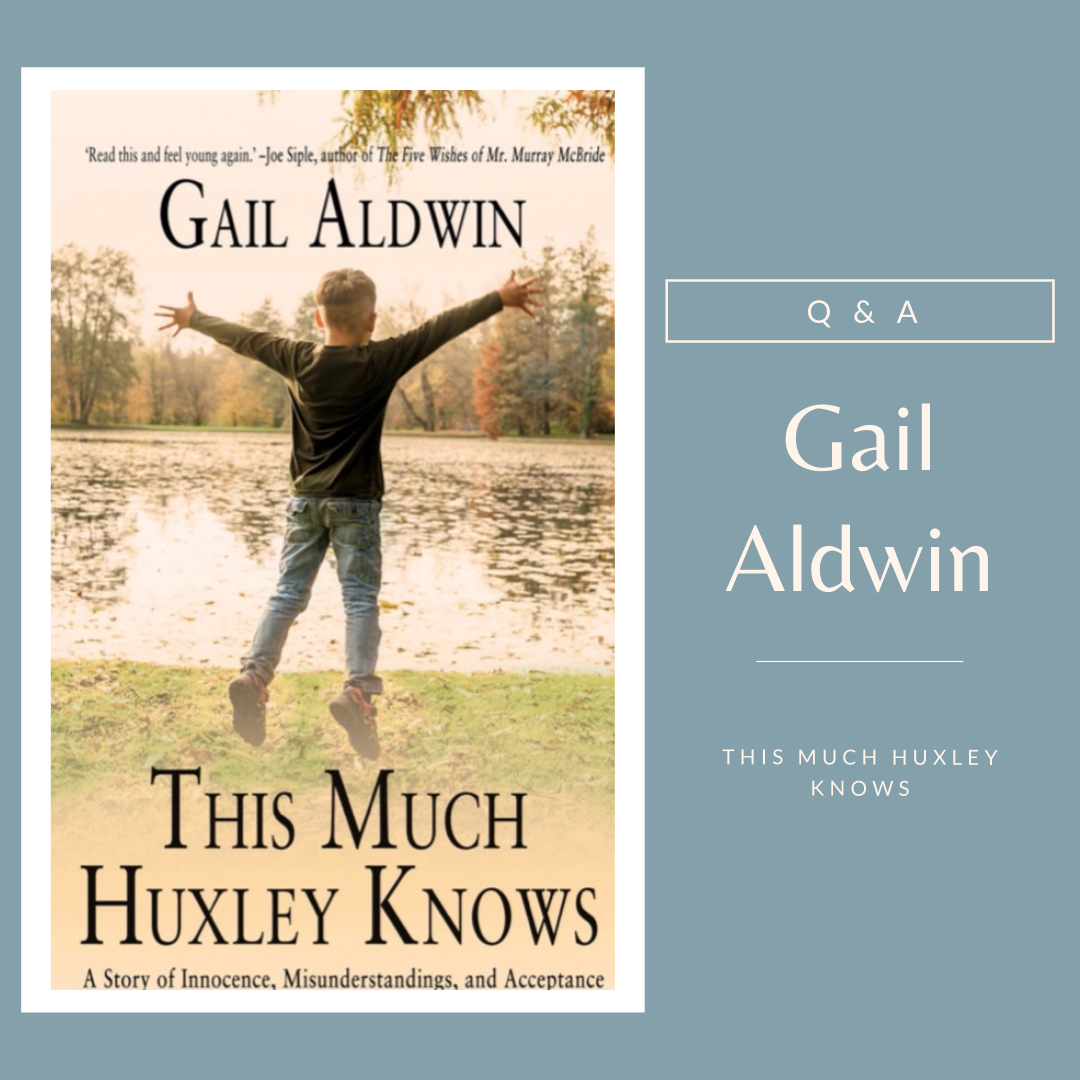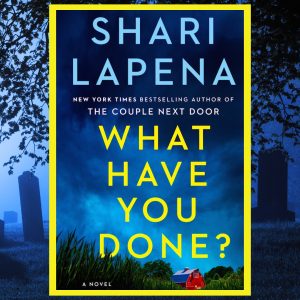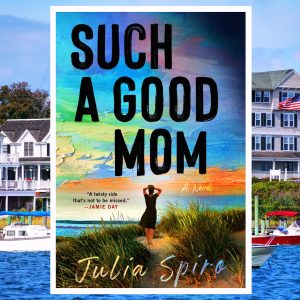[responsivevoice_button buttontext=”Listen”]
Join me in this Q&A with Dr. Gail Aldwin, author of “This Much Huxley knows”, as Gail discusses her writing, inspiration and other fascinating facts about the creative process.
Q. Where did the inspiration for This Much Huxley Knows come from?
A. The idea came from my debut novel The String Games. The catalyst for that story involves the disappearance of four-year-old Josh who goes missing during a family holiday in France. It was because I enjoyed writing about a child character, I decided to explore writing with a young narrator. When I read the early chapters of This Much Huxley Knows to my writing group, they were sceptical I’d be able to sustain a child’s voice for the length of a novel. This proved to be a motivating factor – tell me I can’t do something and I’ll always want to give it a try.
Through This Much Huxley Knows, I explore tensions around intergenerational friendships. The novel suggests that we should look beyond the way people present to build connections. Although we may appear different on the surface in terms of age, colour, gender etc there is more that we have in common than that keeps us apart.
Q. Do you know a Huxley?
No. Huxley is a composite of many different children. My twenty-five-year-old son was a young boy once, so I mined memories of him to feed into Huxley. My daughter’s experiences and incidents from my own childhood also informed the character. For twenty years I worked with children in schools and included anecdotes from those days.
Q. How did you develop Huxley’s verbal plays on words? It’s such an interesting quirk – and gives a playful tweak on his character.
In my research to create a unique voice for Huxley, I read many novels with young narrators. The character that influenced me most was six-year-old Billy in Chris Wakling’s What I Did. In the story, Billy misbehaves and is smacked by his father. This incident fuels the narrative when an onlooker reports the family to social care. Billy’s language is convincing and often hilarious. He uses idioms he’s heard but transcribes them incorrectly. We read a different cuttlefish instead of a different kettle of fish and drives him to destruction rather than drives him to distraction. Instead of using this same technique, I decided my character would purposefully wangle words to try and be funny. In this way, Huxley hopes to win friends.
I really enjoyed developing Huxley’s voice. At the beginning, I’d take any two or three syllable word and have a go at changing it into something a seven-year-old might find funny. Huxley has heard a lot about Brexit but calls it Breaks-it (there’s a sad truth in Billy’s word). At school, when Huxley’s asked to break down words into syllables, he, calls them silly-balls. He knows to wrap up warm to avoid pneumonia but changes the word to new-moan-ear. And so the jokes continue.
Q. In your novels, the child’s voice plays a starring role. How important is this to you when conceiving the idea for the novel?
For The String Games my aim was to show the developing voice of the protagonist at three stages of her life. The novel starts with Josh’s disappearance when Nim is ten, we meet her again at fifteen when she’s turned into a vulnerable young person and later at twenty-three as she struggles to address issues of unresolved grief. For This Much Huxley Knows, I wanted to experiment with a young narrator to capture the immediacy of his experiences: the joys, the worries and the curiosity of a child. My work-in-progress Extra Lessons is a dual timeline crime novel that uses first person narration to capture the voice of a sixteen-year-old girl who experiences infatuations and exploitation during the 1970s. This is juxtaposed with a menopausal, redundant journalist who investigates Carolyn’s disappearance through the development of a podcast. It’s an interesting combination of voices. I have a feeling a child character might appear in all my future novels.
Q. Describe your writing day.
Since lockdown, I’ve joined Writers’ Hour each weekday morning at eight o’clock. It’s a Zoom call with hundreds of other writers who share a concentrated fifty minutes of writing. We are welcomed by hosts at the London Writers’ Salon and offered a few inspiring words before we begin our writing projects. At the end, there’s a chance to debrief. It works well for me, launching me into the writing day. It also helps to separate the week days from the weekends (when I shouldn’t be writing so much but spending time with my family).
Q. How has the publication process been for This Much Huxley Knows? Has having one novel already published made it easier?
Having been through the process once, I was certainly much calmer the second time around. This Much Huxley Knows is published by a small press in America and it’s been a learning curve getting used to the different expectations in terms of editorial support. With Black Rose Writing I’ve joined an enthusiastic bunch of authors who are always willing to lend a hand. Of course, it doesn’t mean to say there haven’t been the usual last-minute changes and panics!
Q. Your first writing successes came through flash fiction and poetry. Has this played any role in your development as a novelist? Do you have a preference now or will you continue to write in various formats?
My passion is for writing novels. I continue to dabble in short forms of writing alongside drafting a new work-in-progress as I find this exercises different creative muscles and like cross training, helps to build the stamina to complete a long project. Now I’m more experienced as a writer, I usually know how to develop an idea. If it’s a fleeting moment or thought, that works for poetry. Where I can develop a story arc, it might be right for short fiction. Sometimes, ideas prompt questions and considerable thought. Those are the ideas I want to explore in a novel.
Q. Would you be where you are today without having done a PhD in creative writing?
It’s hard to speculate. I enjoyed my PhD studies and had excellent supervision but writing The String Games alongside a thesis lengthened the process. I might have had several more novels under my belt if I’d taken a different route. I can’t complain – it’s ever so much fun being called Dr Gail. •
Q. Where can we buy This Much Huxley Knows?
Here’s the purchase link for This Much Huxley Knows: mybook.to/ThisMuchHuxleyKnows





Hi Terri
Thank you so much for the interview! I’ve loved working with you on this.
Gailx
It’s mutual, Gail! Thanks again for sharing your thoughts (and your book) with us!❤️